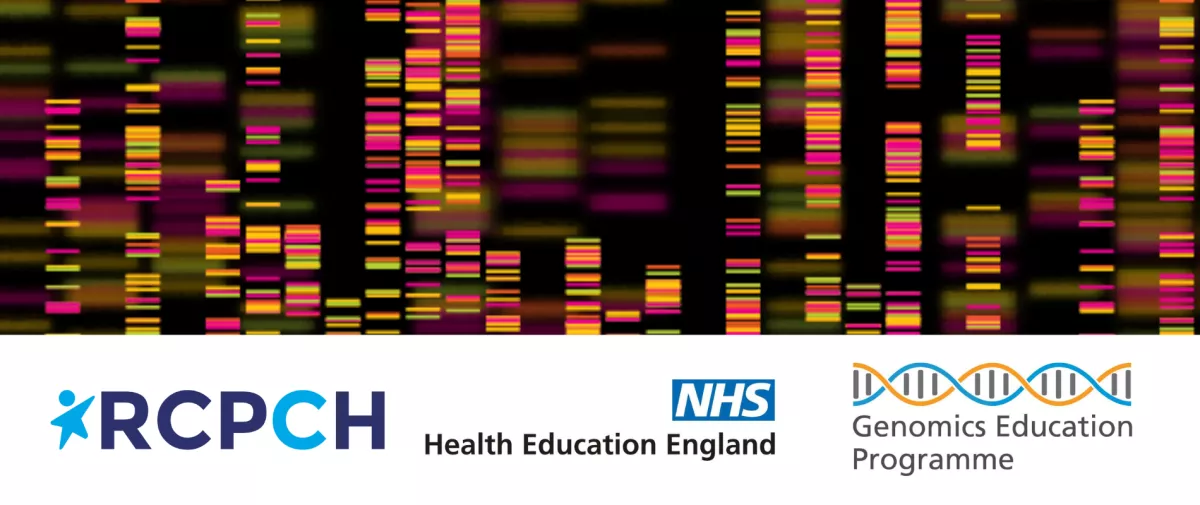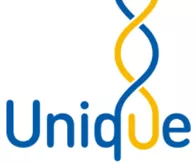We celebrated 'Month of Genomics' in March 2023 in collaboration with Health Education England's Genomics Education Programme. We've posted new resources and insights each week. Take a look below...

Introduction
We are already seeing the positive impact of genomics for diagnostics and personalised treatment. Its use in the clinic can reduce the diagnostic odyssey and help children and young people and their families make the next steps in managing their health.
Clinicians are now often able to treat acutely unwell children and babies more rapidly, enabling positive interventions more efficiently and effectively, potentially changing the course of the child's life.
Week 1 - Welcome to Month of Genomics!
- Dr Ngozi Edi-Osagie - Milestones article
-
The Month of Genomics is particularly timely for RCPCH as we begin to plan and shape our own Genomics Programme. In February, I wrote my first Milestones article as RCPCH Officer for Genomics. I felt it was important to share my hopes, experiences and challenges for child health and genomics.
The Month of Genomics will not just be restricted to March. We aim to use this month as the springboard to develop elearning, events and much more.
Dr Ngozi Edi-OsagieThe referenced media source is missing and needs to be re-embedded. - Dr Camilla Kingdon - vlog
-
Genomics can help us get insights into the most complex cases of unwell children and babies - and we want to equip our members with genomics knowledge for clinical practice.
President, Dr Camilla Kingdon, shares her thoughts on how genomics will impact child health outcomes.
Even when little is understood about a rare condition, a diagnosis can provide comfort to patient families. Here's probably the most affirming comment from patient families: "we feel that we have an answer now that help us [understand why our child has his condition]… we can stop looking now… though there does not seem to be much known as it is a rare condition it is good to have a diagnosis at last."
Week 2 - Learning and support
- GeNotes - Genomic notes for clinicians
-

Genomics Education Programme’s GeNotes provides healthcare professionals with quick and concise information to help make the right genomics decisions at each stage of a clinical pathway.
This educational resource provides information at the point of patient care and also a hub for extended learning. It has been developed in collaboration with clinical and scientific experts from across the health service. Further specialties, including paediatrics, will be added to the resource over the forthcoming months.Find out more about how to use GENotes from Dr Eleanor Hay in our webinar recording here.
- Unique – Understanding rare chromosome and gene disorders
-

Unique provides support, information and networking to families affected by rare chromosomes and gene disorders, and has a helpline team.
Visit the Unique website for a range of resources for families and health professionals.
Getting a rare genetic diagnosis can be an overwhelming and isolating experience for patients and families. Unique helps to relieve that isolation by providing a listening ear helpline service; accurate information about their condition that is written in family-friendly, non-jargon language and connecting people with others who have similar conditions.
Genomics is a hugely exciting new technology that can help children and their families with rare conditions to get a diagnosis faster, often after searching for many years. This can bring explanation, and very often relief to families, and increasingly signposts their doctors to better care and emerging new treatments for their condition. The challenge we now face is how to best integrate genetic testing into our daily clinical practice, so it is available to all who could benefit, with the many ongoing demands currently facing healthcare systems.
RCPCH is keen to embrace genomics and to facilitate this process and to support our members in this area.
Week 3 – Newborn sequencing
- Whole genome sequencing: developments and future perspectives - webinar recording
-
The use of genomics in the clinic is rapidly evolving, with ever-reducing costs and increased availability. Numerous government-led ambitions are in place to continue expanding its use following the success of the 100,000 Genomics Project.
In January we hosted a webinar discussion with Genomics England, which highlighted developments and progress in the Newborn Genomes Programme. A panel of senior clinicians provided expert reflections on education and training, research and the importance of patient and public voice.
You can watch the recording here, and read the panel's responses to questions from the webinar.
- Our position on newborn screening
-
Whole genome sequencing (WGS) of newborns is seen by many as a step-change in how the NHS can provide care and health services to newborns. We recognise the significant impact on detecting and treating child health conditions that are actionable at a young age.
But we are also clearly aware of the need for wider discussions regarding the implementation and provision of such genomics services.
Read more details on our frequently asked questions on newborn screening.
- Newborn Genomes Programme
-

Genomics England is co-designing an NHS-embedded research study to explore the benefits, challenges, and practicalities of sequencing and analysing newborns’ genomes.
The study, which will begin later this year, will be delivered across a select number of NHS sites in England.
Week 4 – Genomics in practice
- Webinar - A Beginner's Guide to Genomic Testing: Who, what & how
-
The availability and accessibility of genomic technologies for diagnostics has rapidly increased over the past decade. In this webinar, recorded on 27 March 2023, Dr Harry Leitch introduced ordering genomic tests in the NHS, with a particular focus on Whole Genome Sequencing (WGS). He covered how to interpret the results of genomic tests and offered tips on the consenting process and speaking with families.
You can watch this below, or see more details on the webinar recording page.
We would like clinicians to be empowered to embrace genomics, feel supported in facilitating discussions with families and the turnover of test results to rapid enough to allow meaningful change in care pathways.









